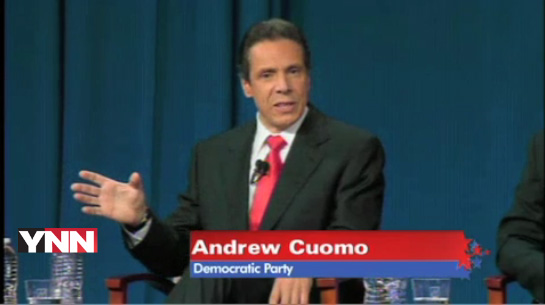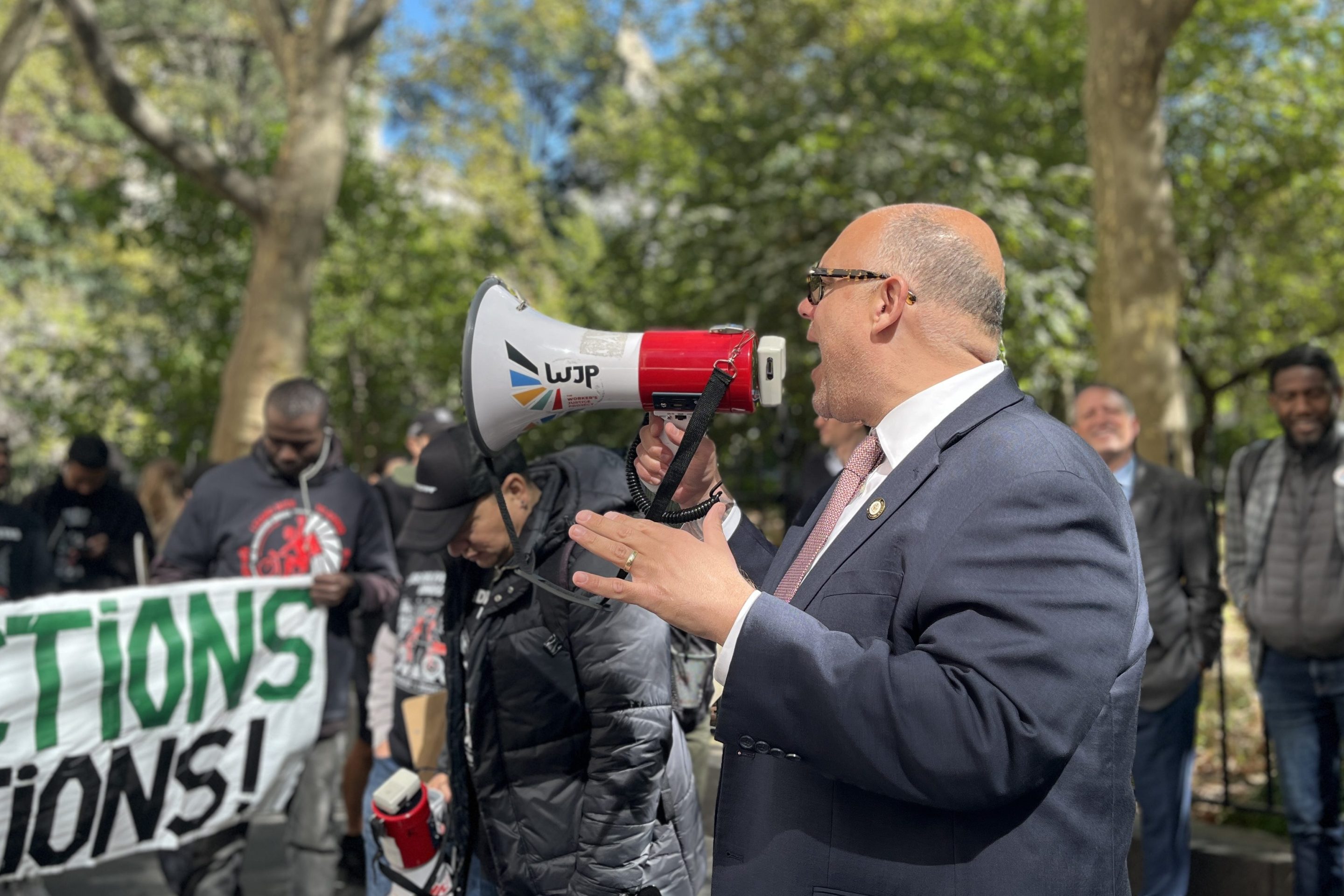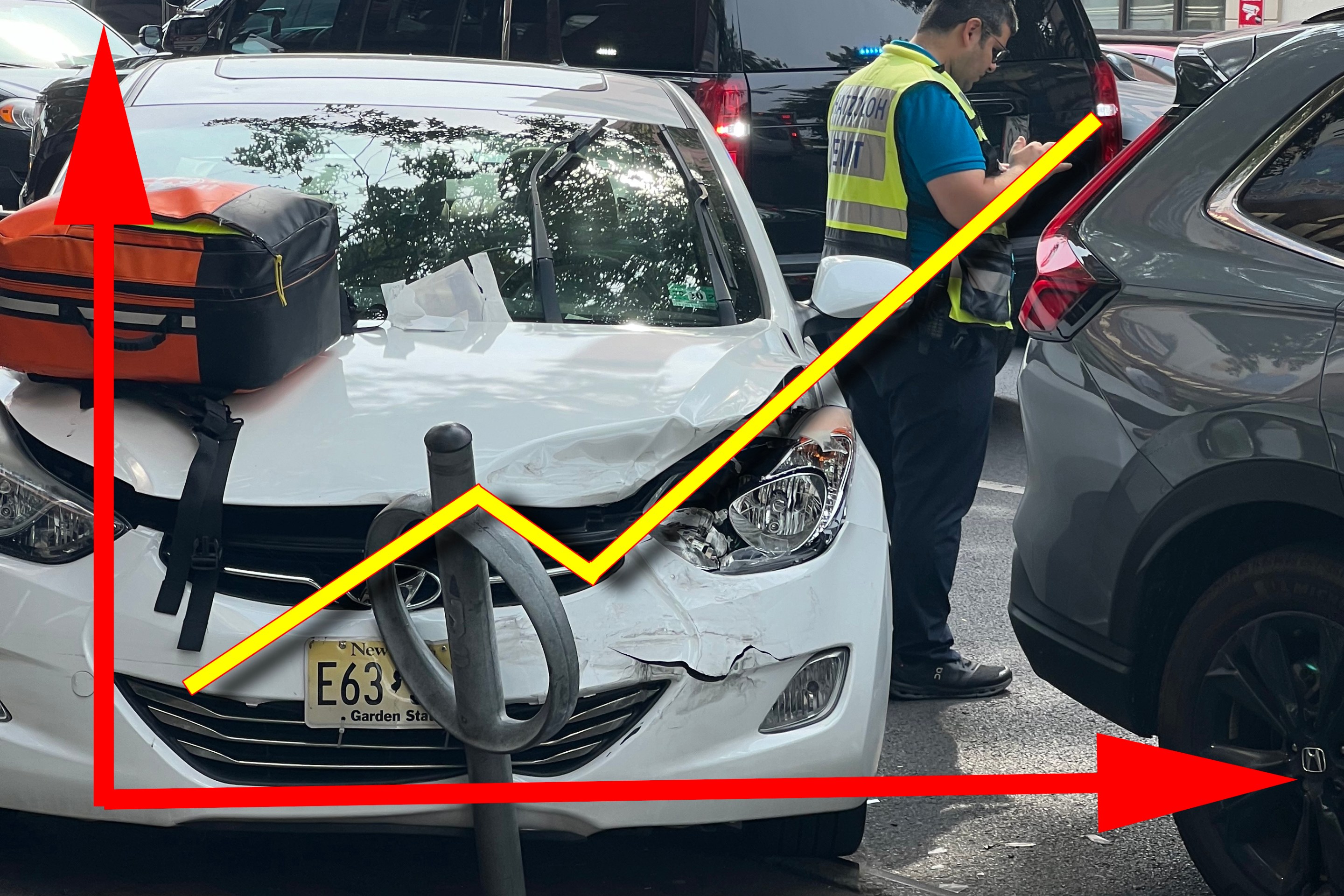
Try this little experiment. Click over to the video of last night's seven-candidate gubernatorial debate. Start at the 55:30 mark, then close your eyes and listen to seven solid minutes of MTA bashing. Which of those candidates is the presumptive governor-in-waiting with a 35-point lead in the latest poll and, presumably, some political leeway to tell voters the truth about what's happening to their transit system?
Even with a helpful introduction from the moderator, it's tough to pluck that guy out of the crowd. On transit and the MTA, Andrew Cuomo sounds almost indistinguishable from "Manhattan Madam" Kristin Davis.
In his allotted MTA minute, Cuomo falls back on the "two sets of books" line (a standby dismissed in court years ago but revived by shameless pols ever since), singles out overtime costs for scorn, and claims that "no one is in charge" of the agency. Those would be the same overtime costs that MTA chair Jay Walder -- the person in charge -- has started to rein in.
Strangely, Cuomo doesn't even acknowledge the existence of Walder, who's made good on early promises like improving the MTA's delivery of information to transit riders. (Ride the train these days, and all the new countdown clocks are hard to miss.) Even Richard Brodsky says good things about the guy.
If Cuomo was trying to say that there's no political accountability for the MTA, he failed. And his diagnosis -- make the MTA a state agency -- is off-base. Putting the governor in charge of the MTA won't make the state legislature less obstinate about funding transit. Until someone with a big bully pulpit, like New York's next governor, starts describing the threat to transit riders accurately, elected officials will still be able to duck blame for fare hikes and service cuts.
This anti-incumbent election season is as good a time as any for a statewide candidate to turn Albany into the punching bag for transit woes instead of the MTA. It shouldn't be hard to get some of these points across:
- If Albany hadn't swiped dedicated transit revenues from the MTA last year, the agency would have had at least $100 million more in its purse -- enough to stave off cuts to buses and trains.
- Until Albany sorts out its budget problems, transit riders will be at risk of paying for the state's fiscal mess.
- MTA revenues nosedived with the rest of the economy in 2008, and Albany dysfunction stymied the full funding package recommended by an independent panel.
- Because the Pataki administration forced the MTA to borrow excessively, transit riders are paying the price.
Someone in public office has got to start telling voters what's actually dragging the transit system down. Otherwise legislators will just have thicker cover the next time transit gets shortchanged in Albany.





